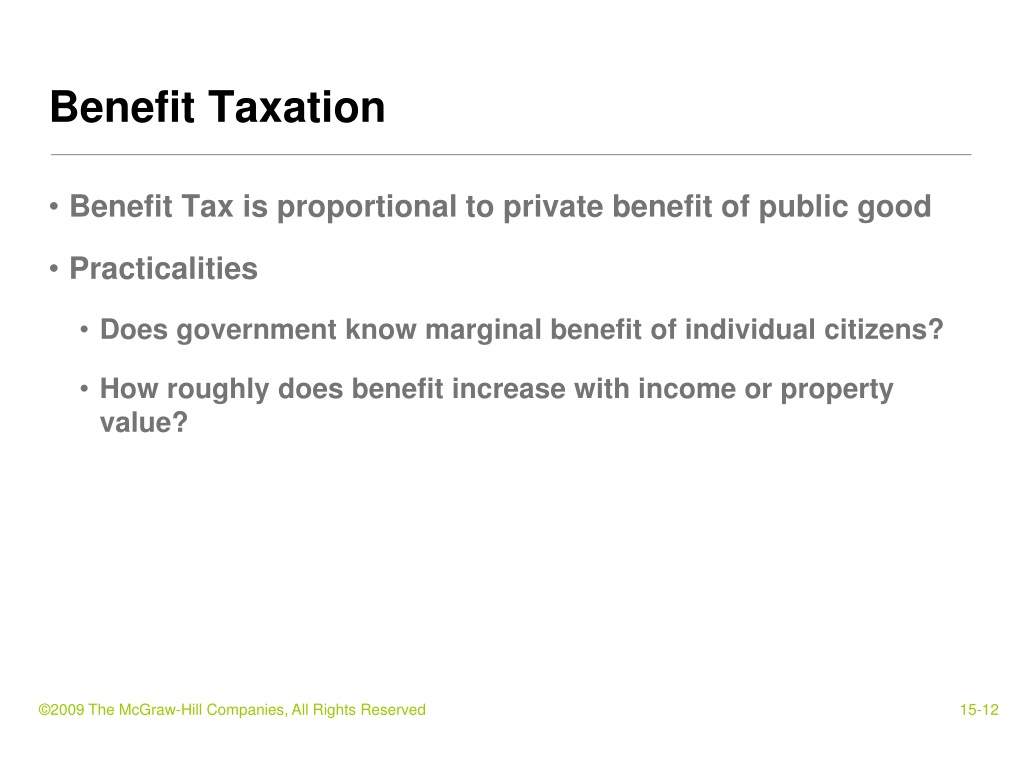
Government cannot levy taxes as per the benefit obtained in the cases of public education that has been provided, the transport, Gasoline excise duties, etc.


The main drawback of the benefit principle concept is that it is not practically possible to levy on universal products. Also, with all the facilities and help that are rendered to the underprivileged, they may further enjoy the benefits from the government by claiming for tax reimbursement under special category. The individuals who are less benefitted are likely to pay less tax. Those who are reaping more benefits have to pay more taxes. This principle gives more importance to fairness and equality. The ability to pay principle states that tax burden should not be distributed without considering an income level group, which is a key factor. The US tax system is a progressive or ability to pay principle. The US tax system does not follow this principle. This principle is often found to be interesting for its superficial equality in that those who benefit from a service should be the ones who pay for it. Like highway tolls, tuition fees, or charges for administrative concessions or licenses. The benefit principle applies the logic that government spending should be compensated by the people who receive them.

It states that the taxpayer should contribute to the government in proportion to the benefits obtained from the government institutions and programs. The benefit principle is generally known as a traditional reasoning for the obligation of taxes.


 0 kommentar(er)
0 kommentar(er)
